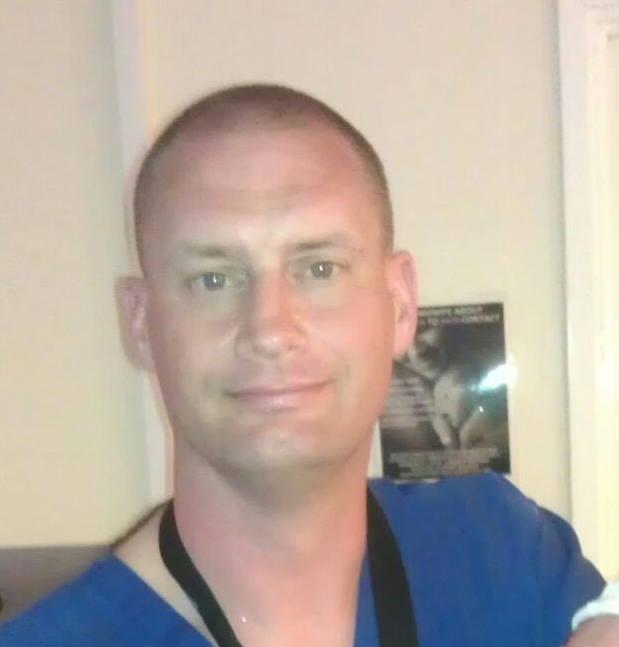Call the WLV Midwives

Lee Wright, Midwifery lecturer in the Faculty of Education, Health and Wellbeing at the University of Wolverhampton shares an insight about being a male midwife.
So, what does being a midwife mean to me? This is a question I get asked a lot. As a male in a female-dominated profession, I guess you could say I’m ‘unusual.’ In the UK, there are around 115 male midwives and around 40,000 midwives overall so you can see we are far less than one per cent of the profession.
I never had any intention to be a midwife. I went to a very poor school; I was the son of a single mother on a very rough council estate, and I left school with no qualifications at all. I wanted to join the military but an injury during basic training meant I was medically discharged before I completed it. Not knowing what to do, I went along to the local further education college and joined what would be now classed as an ‘access to nursing course’ to study, what were then called, O levels. I decided to do nurse training because if I’m honest I didn’t know what else to do.
During my general nurse training, I had a 12-week placement in maternity, and it was a revelation. I had enjoyed nurse training in general, but there was something about midwifery that really appealed to me. I loved the concept of working with families rather than an individual with a medical problem. I think it’s the variety of people and situations that you see which makes it so appealing.
You see people of every background, ethnicity, religion, economic and social scale. There is insight into every conceivable lifestyle so if you are interested in people it’s an excellent choice. Lots of people ask about vaginal examinations and seeing people’s intimate body parts but that is only a tiny fraction of what midwives do. I have looked after women from across the globe and I find what they want is someone who treats them with dignity and respect and makes them feel like they can trust them. As long as you are clear about what you are doing and fully involve the family in the decisions about their care, generally, people don’t care what sex, race, or religion their caregiver is.
Over the years, I’ve had many memorable deliveries. I’m as excited about facilitating a birth now as I was my first. There is no doubt that it is a privilege to be present at the birth of a baby. It’s a significant moment in a family’s life and I feel proud of every single one I’ve ever done. I know I’m old, as I have babies that I have delivered who are now parents themselves. Many of which I still see and have close relationships with.
At the heart of what I do as a midwife, is to help people through what is a difficult and scary time for them. My second priority is to redress inequality, there are many people who don’t have someone to fight for them, to ensure their voice is heard and their choices incorporated into their care. In recent years, I have become increasingly interested in the law and particularly human rights law and how to support pregnant women from being exploited. I think it’s a midwife’s role, whether male or female to really act as an advocate for women and help reinforce their rights and support them on one of the biggest experiences in their life.
To say I’m proud to be a midwife would be an understatement. I’ve been a midwife for almost 30 years, and I still learn something new every day and I continue to be inspired by women and what they accomplish. I’m immensely proud to be one of many midwives that help women when they’re at their most vulnerable and make them feel empowered to bring new lives into the world.
To find out more about our Midwifery course and register your interest for our 2023 intake.
For more information please contact the Corporate Communications Team.


/prod01/wlvacuk/media/departments/digital-content-and-communications/images-2024/Diane-Spencer-(Teaser-image).jpg)
/prod01/wlvacuk/media/departments/digital-content-and-communications/images-18-19/220325-Engineers_teach_thumbail.jpg)
/prod01/wlvacuk/media/departments/digital-content-and-communications/images-2024/240509-Menopause-Research-Resized.jpg)
/prod01/wlvacuk/media/departments/digital-content-and-communications/images/Maria-Serria-(teaser-image).jpg)
/prod01/wlvacuk/media/departments/digital-content-and-communications/images-2024/241014-Cyber4ME-Project-Resized.jpg)
/prod01/wlvacuk/media/departments/digital-content-and-communications/images-2024/240315-Research-Resized.jpg)
/prod01/wlvacuk/media/departments/digital-content-and-communications/images-2024/BDA-group-photo.jpg)